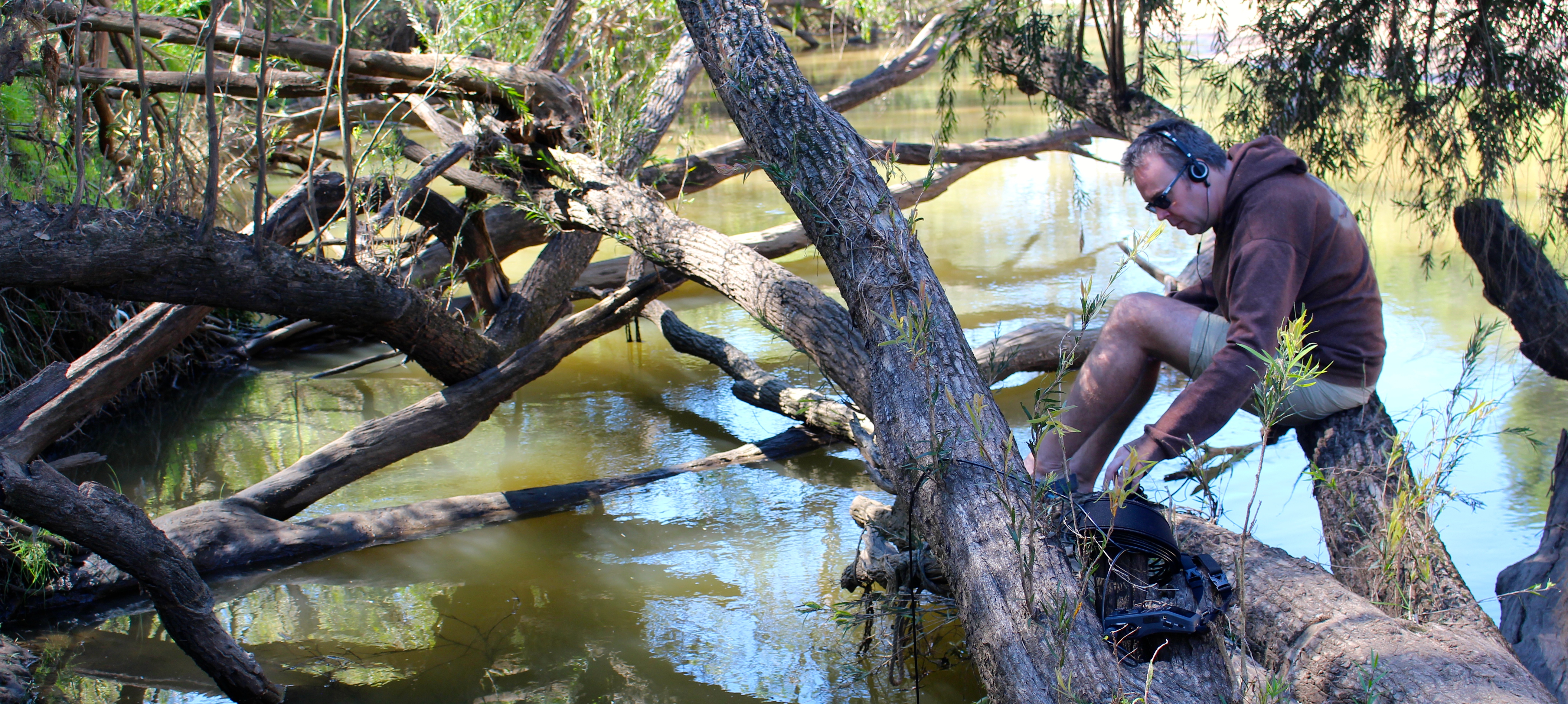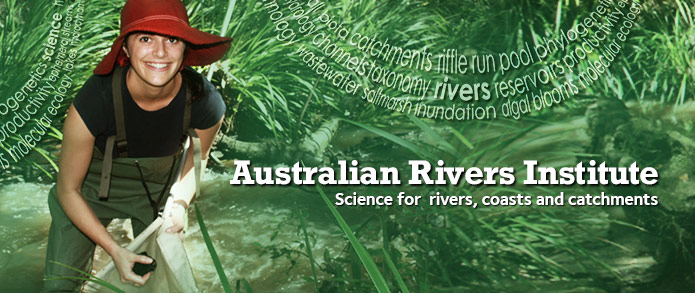“ Our mission is to do world-class science that improves our understanding of catchment, river, estuarine and coastal ecosystems; to provide a creative and collaborative environment that fosters the next generation of ecosystem scientists; and to provide the knowledge to support the sustainable use and conservation of the world’s natural resources.”
One of the most exciting aspects of River Listening is the opportunity to collaborate with The Australian Rivers Institute (ARI) in Brisbane. While River Listening revolves around field work with ARI scientists across South East Queensland, we are also exploring ways to integrate our outcome into existing ARI research projects.
The Australian Rivers Institute is Australia’s largest university aquatic ecosystem research group with globally recognised expertise in river, catchment and coastal ecosystems and the interaction of these systems with society. The institute brings together 130 staff and researchers at the Nathan and Gold Coast campuses of Griffith University. Their international reputation is evident in being a founding member of the International Water Centre and holding seats on a number of international water management committees, such as the Global Water System Project, and Diversitas. The research conducted at the ARI provides the knowledge to underpin the sustainable management of aquatic ecosystems and ARI researchers have initiated a series of interdisciplinary research projects, including creative collaborations, that have been recognised internationally.
Their research focuses on a “source to sea” philosophy, delivering through six themes:
- Catchment and river ecosystem processes
- Coastal and estuarine ecosystem processes
- Restoration science and environmental flows
- Aquatic ecosystem monitoring and assessment
- Aquatic biodiversity and conservation
- Integration and adoption
Through its leaders and researchers, the Institute is proactive in national and international water science planning and research bodies. Freshwater conservation planning is an area of emerging strength at ARI. Dr Simon Linke, Dr Virgilio Hermoso and Dr Mark Kennard are at the forefront of pioneering research to identify conservation and management priorities to sustain freshwater ecosystems and biodiversity. Adapting and applying systematic planning principles to the unique challenges posed by freshwater environments, they have developed novel techniques for integrating spatial and temporal hydrologic connectivity and other important ecological processes into the spatial prioritization process.

The scientific grounding of the River Listening collaboration is led by ARI Senior Research Fellow Dr Simon Linke, one of Australia’s leading freshwater conservation scientists, whose pioneering work in biomonitoring and river conservation planning has been used by agencies and NGOs from South East Queensland to the Congo. Dr Linke’s current research interests include environmental planning and real-time ecology using movement tracking, bioacoustics and environmental DNA.
An iconic building and the headquaters of the Australian Rivers Institute, the Sir Samuel Griffith Centre is Australia’s first teaching and research building powered by a combination of photovoltaics and hydrogen. The centre has been awarded a 6-star green rating by the Green Building Council of Australia.
The building exemplifies Griffith University’s mission to provide world leading technology, facilities and resources enabling the finest minds to strive for great outcomes in education and research – all founded on a non-negotiable commitment to environmental sustainability.
Griffith long-standing international reputation for excellence in environmental research helps it play a leading role in managing water resources with a focus on freshwater, estuarine and urban water. Australian Rivers Institute researchers have developed a set of ecosystem health assessment tools for measuring conservation efforts in producing South-East Queensland’s annual Healthy Waterways Report Card. They have also revolutionised work in wastewater testing and identified new methods for river monitoring. The River Listening team is looking forward to expanding this project in collaboration with ARI in the future.
For further information on ARI, see their website www.rivers.edu.au

